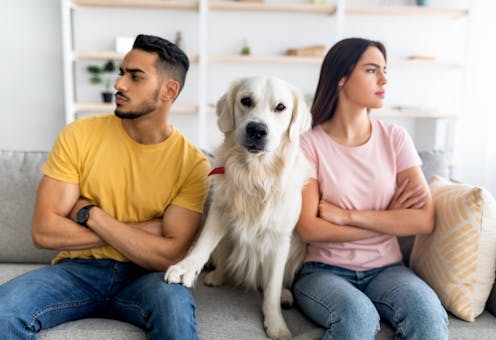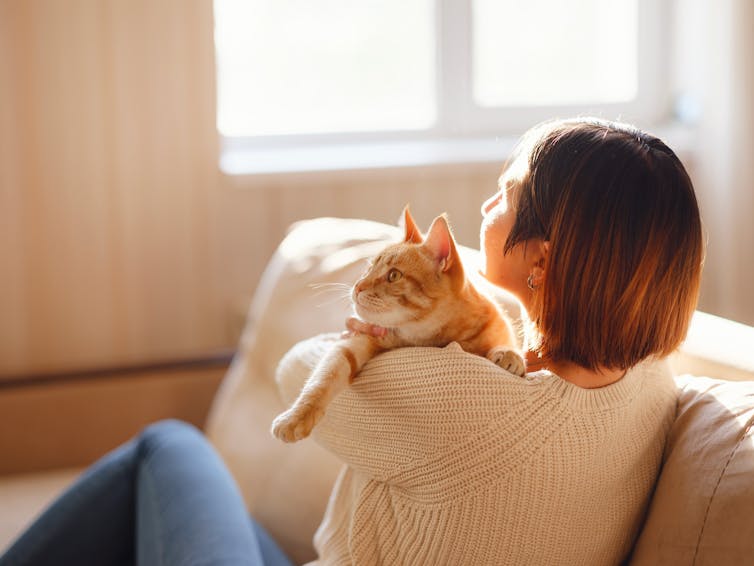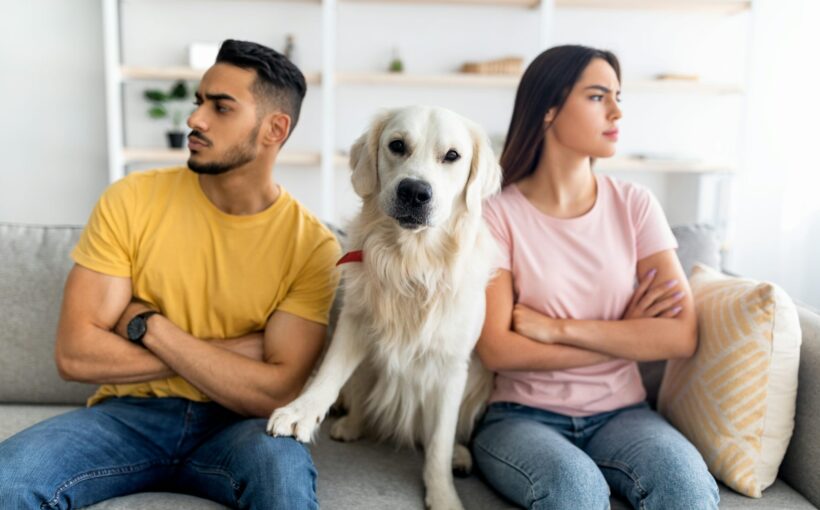
Never mind having kids, for young couples today adopting a pet together is an important relationship milestone. Pet ownership in the UK and elsewhere is largely driven by millennials and generation Z, according to one survey. But what happens to your “fur baby” if you break up?
One option some pet-owning couples are now considering is to draw up a “pet nup” (a play on prenup or prenuptial agreeement) to agree on what’s best for the animal should the relationship break down. But what does the law actually say about this situation?
A friend of mine adopted a dog, Milo, with their partner just before the pandemic. When they split a few years later, they decided to share custody of Milo. This included opening a joint bank account (after separating) so they could both contribute to Milo’s food, veterinary and other bills. They made arrangements to pass Milo between them every fortnight so that he could spend time equally with each of them.
My friend is lucky. If their ex-partner had not agreed to sharing custody, then a dispute over Milo’s ownership would have arisen. Under English law, dogs are classed as property, or “chattel”. A determination of who owns Milo would therefore be made under the rules of English property law.
According to a recent survey conducted by a pet insurance company, family pets are the biggest point of contention in a quarter of divorces in the UK.
At the end of a marriage or civil partnership, ownership of assets is determined in family courts. This is based on what the court thinks is fair and just, depending on each partner’s financial and non-financial contributions. In this sense, there is some scope for deviating from purely property-based rules in determining ownership of the animal.
For unmarried couples, determination of ownership of assets is often based on who has paid for the asset or who has the title to the asset. In relation to pets, this will often turn on questions such as: who paid for the animal (or paid an adoption fee), whose name appears on the microchip and registration papers, who has taken out the insurance policy and who has paid the vet fees.
Other contributions towards the animal’s care, and attachment to or bonds with the animal are not usually considered in determining ownership. The law provides little room to consider the welfare or best interests of the pet in deciding which party it should remain with.
However, a recent case shows how courts can be more flexible in determining pet ownership between an unmarried couple.
The case involved a man (DM) and a woman (SK), who adopted a dog together in 2020. SK was most responsible for the dog’s welfare, taking time off work to help the dog settle in, taking out pet insurance and paying vet bills. SK also owned another dog which was meant to be a companion to the adopted dog – a condition stipulated by the animal rescue.
Crucially, the adoption contract was sent by the animal rescue to DM’s e-mail address, and DM paid the adoption fee out of his account (SK paid more bills that month to cover her share of the adoption fee).
When the couple broke up, ownership of the dog was called into question. The court ruled that DM was the dog’s legal owner, because he signed the contract and paid the adoption fee.
However, the court noted that SK had looked after the dog very well, and that the dog had resided mainly with her after the breakup. The court also noted that the dog was bonded with SK’s other dog. On this basis, the court ordered that SK should pay DM a nominal sum for ownership of the adopted dog to be transferred to her.
This was a creative solution to satisfy the rules of property law, but which also enabled wider considerations around the welfare of the pet.
This was a county court decision in which the judge exercised his discretion, and is not binding on future cases. But we are starting to see promising legal changes in other jurisdictions when it comes to pet custody.
Changing the law
In 2022, Spain passed a law classifying pets as sentient beings instead of property. This allows courts to order shared custody of animals between partners, and to consider the welfare of the animal in determining custody orders, similar to custodial arrangements involving children.
Courts also have the power to order one party to pay towards the costs of maintaining the animal. Similar developments have been seen in other European countries like Portugal, France and Switzerland.
In light of new and proposed legislation in England and Wales that recognises animal sentience and renters’ rights to keep pets, there is hope for new policies on the pet custody dispute front as well.

In the meantime, couples who adopt pets jointly should discuss their options in the unfortunate event of a relationship breakdown. One option is to sign a “pet nup” at the start of the relationship, where the parties agree on ongoing pet care post breakup. Another option is to seek out a family mediator specialising in pet mediation to negotiate shared custody arrangements.
Above all, if you are planning to adopt a pet with a partner, be conscious of how you pay for the animal and whose names are registered on its microchip and other relevant documents. This remains the strongest evidence of ownership in the eyes of the law.
![]()
Rachel Heah does not work for, consult, own shares in or receive funding from any company or organisation that would benefit from this article, and has disclosed no relevant affiliations beyond their academic appointment.



